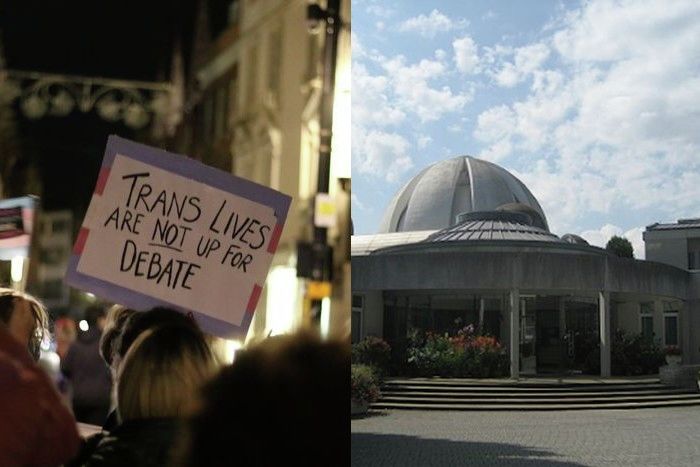A week in Cambridge science: New research on dwindling vaccine protection
The Science team showcase Cambridge science research this week, including King Charles’ visit to the University’s new sustainable aviation centre

COVID vaccine protection dwindles faster in obese people
Cambridge scientists have found that the protection offered by COVID-19 vaccines declines much quicker in people with severe obesity, compared to people with an average BMI, recommending that people with obesity may need more frequent booster doses to maintain their immunity.
Dr Agatha van der Klaauw from the Wellcome-MRC Institute of Metabolic Science said: “This study further emphasises that obesity alters the vaccine response and also impacts the risk of infection. We urgently need to understand how to restore immune function and minimise these health risks.”
Criminologists uncover shocking statistics about Mass Shootings in America
In other research news, Cambridge criminologists, in coordination with researchers from Harvard and Oxford, have found that half of Chicago’s population will have witnessed at least one shooting by the time they are 40.
“Existing evidence suggests that the long-term stress of exposure to firearm violence can contribute to everything from lower test scores for schoolkids to diminished life expectancy through heart disease,” said study lead author Dr Charles Lanfear, from the University of Cambridge’s Institute of Criminology.
While men were more likely to be involved in gun violence, the study found that “the chronic stress effects on women from being so highly exposed to firearm violence may well be substantial in Chicago, and indeed in many US cities. Given the levels of women and children witnessing gun violence in the city, the vast majority of this exposure will be as bystanders in public spaces, in streets or outside schools.”
Prospects for safer medical imaging
Joint research led by the Universities of Oxford and Cambridge has the potential to make medical imaging much safer. While X-ray imaging is standard in medicine, the poor performance of detector materials means that large doses of X-rays are often required for imaging– which can cause harm to patients, and in some cases, even cancer. Cambridge scientists have found that a solar cell material, called bismuth oxyiodide, can detect X-ray dose rates over 250 times lower than the current best-performing detectors used commercially. This finding could open up new opportunities for non-invasive diagnostics, such as X-ray video techniques.
“We need to completely transform the innovation landscape in the aviation and energy sectors if we are to reach net zero by 2050”
King Charles visits Cambridge’s New Whittle Laboratory
As Varsity revealed earlier this week, the newly-coronated King Charles’ first royal duty this week was unveiling the New Whittle Laboratory, stopping off in Cambridge en route between London and Sandringham. The commotion caused by the visit caught some STEM students in West Cambridge by surprise. First-year student Emmanuel Adesola remarked: “Before you know it, I see people running out of the building [...] Everyone was in awe.”
Zero carbon flight is one of the greatest sustainability challenges. The vision of The New Whittle Laboratory is designed to revolutionise technology development, making the process at least 10 times faster and cheaper, for ultra-low emission aircraft and low-carbon power generation. By providing fast feedback between cutting-edge science and emerging engineering applications, Cambridge scientists and engineers hope that it will be able to “dramatically cut the time to deliver zero-emission technologies”.
“To save this planet from increasing catastrophe, the aviation sector is critical”
“We need to completely transform the innovation landscape in the aviation and energy sectors if we are to reach net zero by 2050. The New Whittle Lab has been designed as a disruptive innovation laboratory targeting the critical early stages in the lifecycles of technologies, where there are windows of opportunity to translate scientific strengths into global technological and industrial leadership,” said Professor Rob Miller, director of the Whittle Laboratory.
Miller is a leading advocate for the pressing need for practical solutions to climate change, discussing the need for a much wider adoption of the efficiency and industriousness of science and engineering in society and government with Dominic Cummings in his speech at Gonville & Caius College earlier this year.
The King has long been known for his environmental activism. It is his third visit to the Whittle Laboratory site in as many years. Giving a speech to the crowd, the King reflected upon his time at Cambridge, and remarked that “to save this planet from increasing catastrophe [...] the aviation sector is critical.”
In the then Prince of Wales’ opening address to the American Society of Mechanical Engineers, he argued that “while many are calling for net zero flight by 2050, I would like to challenge you all to think about halving that time frame to 2035.”
The New Whittle will be vital in helping the UK to maximise the economic opportunities of becoming a greener economy and in meeting its commitment to net-zero carbon emissions by 2050. Grant Shapps, the UK Government’s Energy Security Secretary, said that Cambridge was at the forefront of the UK’s “revolution in aviation” by “looking to new technologies to cut emissions”.
 Comment / How a culture of knowing shapes the Cambridge application process1 March 2025
Comment / How a culture of knowing shapes the Cambridge application process1 March 2025 News / Murder investigation launched following Chesterton Road stabbing27 February 2025
News / Murder investigation launched following Chesterton Road stabbing27 February 2025 Theatre / L’incoronazione di Poppea: lessons in power and patience1 March 2025
Theatre / L’incoronazione di Poppea: lessons in power and patience1 March 2025 News / Robinson swaps May Ball for a ‘mega bop’26 February 2025
News / Robinson swaps May Ball for a ‘mega bop’26 February 2025 News / Pro-Palestine protesters hold rally during graduation ceremonies 2 March 2025
News / Pro-Palestine protesters hold rally during graduation ceremonies 2 March 2025






